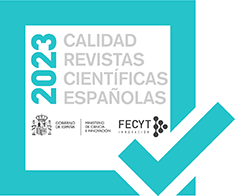Título: “Avances y retrocesos en la negociación del Pacto Mundial por el Medio Ambiente”
Title: “Progress And Setbacks In The Negotiating Process Of The Global Pact For The Environment”
Autora: Teresa Fajardo del Castillo, Profesora Titular de Derecho Internacional Público y Relaciones Internacionales, Universidad de Granada, fajardo@ugr.es
Fecha de recepción: 22/ 07/ 2019
Fecha de aceptación: 19/09/2019
Resumen:
El pasado 20 de Mayo de 2019, el Grupo de Trabajo especial de composición abierta establecido por la Asamblea General de las Naciones Unidas para estudiar el futuro proceso de negociación de un Pacto Mundial por el Medio ambiente, dio un giro a las negociaciones posponiendo varios años su desenlace y renunciando a la naturaleza convencional del Pacto. El cambio de rumbo afecta además a los objetivos de la propuesta de Pacto presentada por Francia que perseguía la adopción de un tratado general para la protección del medio ambiente. Esta propuesta tenía su origen en el texto elaborado por el “Club de Juristes” -un actor no estatal de carácter académico-, que tras ser endosado por Francia habría pasado a ser el instrumento de soft law que impulsaría la adopción de la Resolución 72/277 de la Asamblea General con la que Francia promovería la negociación de un tratado internacional. Su objetivo último era realizar una codificación de los principios del derecho internacional del medio ambiente y reconocer derechos de tercera generación que permitirían a la sociedad civil proteger el medio ambiente. En la nueva visión del Pacto, el foco de atención se sitúa ahora en la mejora de la aplicación del derecho ambiental que se alcanzaría con la adopción en 2022, de una Declaración de Principios respetuosa con la soberanía de los Estados, coincidiendo con el 50 aniversario de la Declaración de Estocolmo sobre el Medio humano.
Abstract:
On 20 May 2019, the ad hoc open-ended Working Group appointed by the General Assembly of the United Nations to study the future negotiation process of a Global Pact for the Environment, gave a turn to the negotiations postponing several years its outcome and renouncing to its conventional nature. The change of course that has been adopted also affects the objectives of the proposal of the Pact presented by France that pursued the adoption of a general treaty for the protection of the environment. The French proposal had its origin in the text prepared by the “Club de Juristes” -a non-state academic actor-, which after being endorsed by France had become the soft law instrument that triggered the adoption of the Resolution 72/277 of the General Assembly. Its ultimate goal was to codify the principles of international environmental law and recognize third-generation rights that would allow civil society to protect the environment. In the new vision of the Pact, the focus of attention is on improving the application of environmental law, a goal that would be achieved with the adoption of a Declaration of Principles respectful of the sovereignty of States in 2022 coinciding with the 50th anniversary of the Stockholm Declaration on the Human Environment.
Palabras clave: Soft law; Principios del derecho internacional del medio ambiente; Derechos humanos; Codificación; Estado de derecho medioambiental
Keyword: Soft law; Principles of international environmental law; Human rights; Codification; Environmental rule of law
Sumario:
1. Introducción
2. La propuesta del ‘Club de Juristes’ de un Pacto Mundial por el Medio Ambiente
3. La propuesta de Francia ante la Asamblea General de las Naciones Unidas
4. Sobre los objetivos y propósitos del Pacto Mundial por el Medio Ambiente
4.1. Sobre el reconocimiento de un derecho humano al medio ambiente y los derechos asociados a éste
4.2. Sobre la codificación de los Principios del Derecho Internacional del Medio ambiente
4.3. La obligación de cooperación entre los Estados en el cumplimiento del Pacto teniendo en cuenta la diversidad de situaciones nacionales
4.4. Sobre la creación de un mecanismo de control del cumplimiento del Pacto
5. El informe del Secretario General “Lagunas en el derecho internacional del medio ambiente y los instrumentos relacionados con el medio ambiente: hacia un pacto mundial por el medio ambiente”
6. Resultados y propuestas del Grupo de Trabajo especial de composición abierta
7. Conclusiones
Summary:
1. Introduction
2. The Proposal of the ‘Club de Juristes’ for a Global Pact for the Environment
3. The Proposal of France to the General Assembly of the United Nations
4. On the objectives and purposes of the Global Pact for the Environment
4.1. On the recognition of a human right to the environment and the rights associated with it
4.2. On the codification of the Principles of the International law of the Environment
4.3. The obligation of cooperation among States in compliance with the Pact taking into account the diversity of national situations
4.4. On the creation of a mechanism to control compliance with the Pact
5. The report of the Secretary General “Gaps in international environmental law and environment-related instruments: towards a global pact for the environment”
6. Outcomes and proposals of the Ad Hoc Open-ended Working Group
7. Conclusions
Documento completo: “Avances y retrocesos en la negociación del Pacto Mundial por el Medio Ambiente”
Doi: https://doi.org/10.56398/ajacieda.00137



